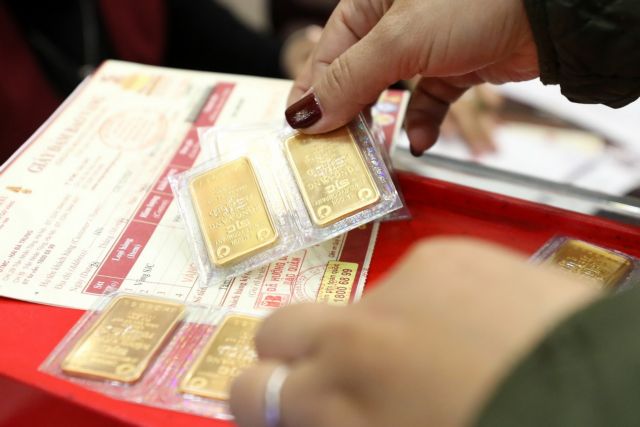The General Department of Taxation proposed the State Bank of Việt Nam study regulations on making non-cash payments compulsory for gold transactions together with a control mechanism to improve transparency.

The proposal that non-cash payments should be made compulsory for gold transactions has caused controversy over its feasibility.
The General Department of Taxation proposed the State Bank of Việt Nam study regulations on making non-cash payments compulsory for gold transactions together with a control mechanism to improve transparency, as part of a number of solutions to enhance the management of the frenzied gold market.
Ngô Trí Long, an economic expert, said the habit of using cash to buy and sell remains common in Việt Nam, so banning the use of cash for any transactions will be problematic.
In addition, gold buyers in Việt Nam are diverse in terms of age, location and purposes. Elderly people are living in rural areas, for example, buying gold in small quantities to save or give as a gift and they are not familiar with banking transactions, Long said.
Non-cash payment is only appropriate to those who buy gold for investment or in large quantity, Long said, adding that non-cash payment should be made compulsory for gold transactions with high value, for example from VNĐ100 million upward, to ensure the appropriateness to the current context.
Huỳnh Trung Khánh, vice president of the Việt Nam Gold Business Association and advisor to the World Gold Council in Việt Nam, said that the proposal of non-cash payment for gold transactions lacked feasibility.
Consumers will be the first to react, not businesses, he said. Compulsory non-cash payment is not appropriate for transactions of small quantity and value. There are still many people who do not own banking accounts or credit cards.
In fact, around the world, countries only encourage the reduction of cash use. No country has made non-cash payment compulsory for an item of goods. “Why non-cash payment should be made compulsory for gold,” he questioned.
Khánh added that even if cashless payment is made compulsory for gold transactions, the regulation will not have huge impacts on the market.
Economic expert Vũ Đình Ánh said that banning gold transactions in cash will not be the solution to tackle the huge difference between the domestic and world gold prices and will not help to calm the buying spur.
Existing legal payment methods must all be allowed in gold transactions, he stressed.
From a different perspective, financial and banking expert Nguyễn Trí hiếu said that limiting cash payments in gold transactions is reasonable to improve transparency, especially in preventing money laundry.
Nguyễn Văn Được from the Việt Nam Tax Consultant’s Association, the more transparent the economy is, the more efficient the State management.
If non-cash payment can be implemented, it will facilitate tax governance as well as macro-economic management.
Nguyễn Văn Thức, a senior tax consultant, said surveys, evaluations and pilot implementation should be carried out before official implementation on a large scale to prevent problems arising during the process. — VNS





